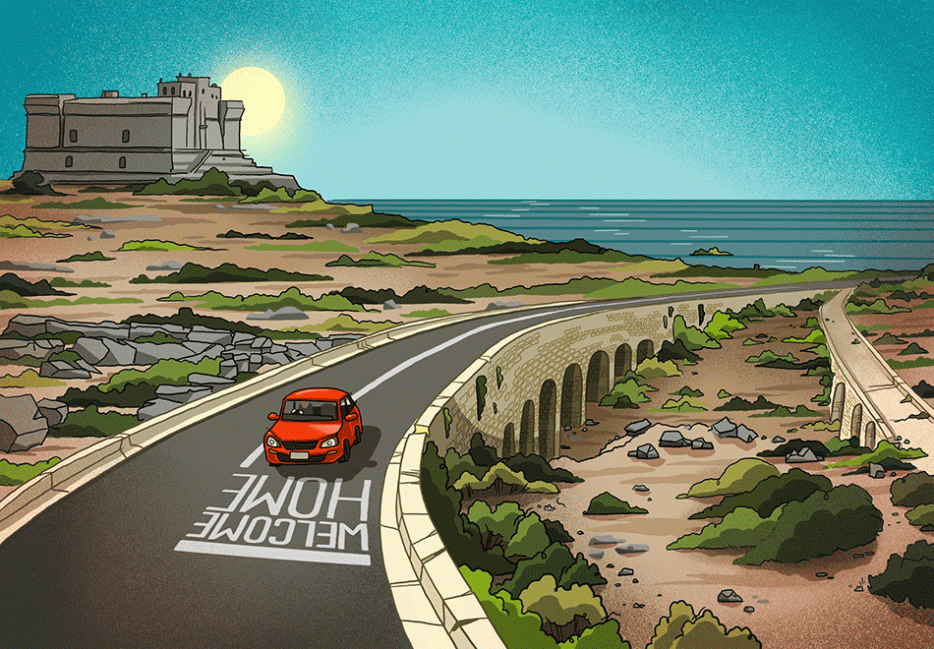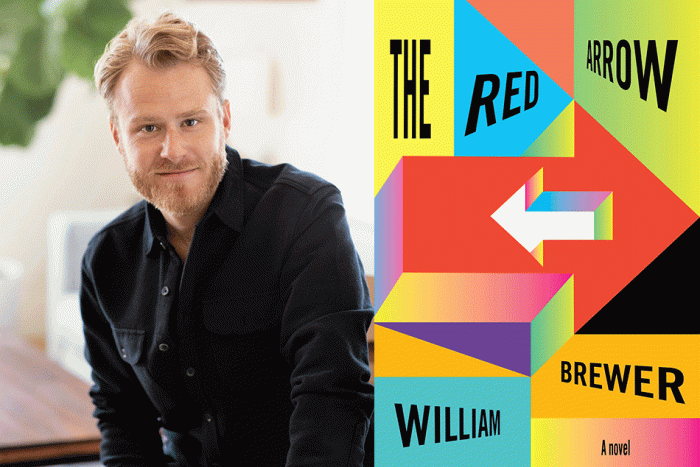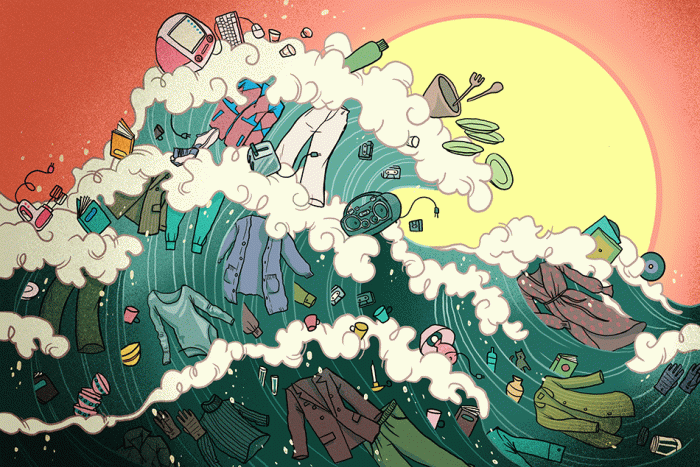When the plane door opens on the tarmac in Malta the cabin fills with humid air, along with a wave of heat in summer, the first welcome to the island. With that air comes the smell, a not-unpleasant melange of Aleppo pine trees and other Mediterranean flora, a bit of smokiness, farmers’ manure, a wisp of the sea and the limestone that the island nation is built on and of. There’s more to the smell and it eludes exact description, but I know it when I smell it and it’s immediately familiar and comforting.
Malta’s airport doesn’t have jet bridges so one exits the plane by stairs, like a head of state arriving on a foreign mission or the Beatles at JFK. For a few seconds there’s time to survey and savour the landscape, to breathe in more of that familiar smell, and to think, to feel, “I’m home.” Well, sort of. Diasporic second-generation homecomings are strange things.
A friend of mine, a second-generation Sri Lankan born in Toronto, describes visiting her parent’s motherland as akin to hollering, “Hey everyone, I’m here!” on arrival and in response everyone looks over their shoulder and says, “Who cares.” We second-generation people (and later generations to fading degrees I imagine) have been told about the “old country” by the generations that emigrated from there, often an idea of place frozen in time the day they left while the actual place kept evolving and getting on with the business and busyness of life. Standing on the airplane stairs that knowledge starts to creep in, as does an uncertain feeling of belonging.
With some exceptions beyond personal ones, there’s not an awful lot of thought given by the mother country to the far-flung diaspora, so there’s a one-sidedness to the relationship, where the homeland looms large in our imagination but we don’t in theirs. But a few years ago, upon returning to Malta, the customs agent looked at my Canadian passport and saw my very common Maltese name and asked if it was my first time visiting. When I said that I’ve been many times she stamped it and slid it back to me saying, “Welcome home.” A small comment but the first time I had ever experienced such an “official” acknowledgement, and the feeling was gleeful.
My dad is always waiting to pick me up by the car outside the relatively small but busy terminal. I’ve visited him enough times that we now forgo the in-terminal arrival for this in order to save a few euros on parking. It’s good to have a dad who retired back to the Mediterranean island he was born on, as it provides a built-in excuse to visit a Mediterranean island often. After a long pause during the pandemic, it was also good to resume these visits this year and repeat some familiar routines.
We drive across the island to his flat while I gape at the scenery in that dreamlike state the first few hours arriving somewhere faraway by plane creates. A pleasurable phantasmagoria, this place that is usually in my imagination is suddenly real. Inside his flat it’s the reverse of what Maltese homes in Canada are like, with their artifacts from “back home.” It contains similar items, but instead from his adopted home of forty years, Canada. Mementos, photos, furniture, and even some appliances that require electricity adaptors all made their way over the ocean in a shipping container. It isn’t uncommon for me to find him up when I arrive back at the flat at two or three in the morning after visiting friends, watching a Toronto Maple Leafs or Detroit Tigers game on his couch. The line between new and old and new countries is blurred.
I spend the rest of the trip catching up with my friends and relatives in Malta but also exploring the island as a diasporic tourist. An interloper in the land that I’m partially from, that somehow made me who I am, I’ve taken to going for drives and long walks without a real plan in order to discover more of Malta, to understand it and map it out in my head. Malta is small but compact, so there’s a lot to explore. Knowing how the streets are laid out, what’s around the bend, where countryside trails lead to and the inside of more buildings slowly builds a sense of connection. Did my people walk here once? Maybe. I’ve taken my dad on some of these journeys but he’s not so interested. He's really of this place so there is no pressing desire to know it in order to know himself. He says I probably know the island better than he does now.
There’s a cinematic black-and-white photo somebody took of my dad, his two sisters and parents, the same month and year the Beatles arrived at JFK, as they walked across the Maltese tarmac to the plane that would take them directly to Canada. Emigrating from Malta in suits, ties, and dresses, they all glanced back over their shoulders at the photographer as the picture was snapped from the viewing platform all old terminals seemed to have, as if they had called out one last farewell to the family. Forever glancing at the other place, back and forth, trying to recognize something familiar, saying goodbye and hello, and inventing home as a tourist.






